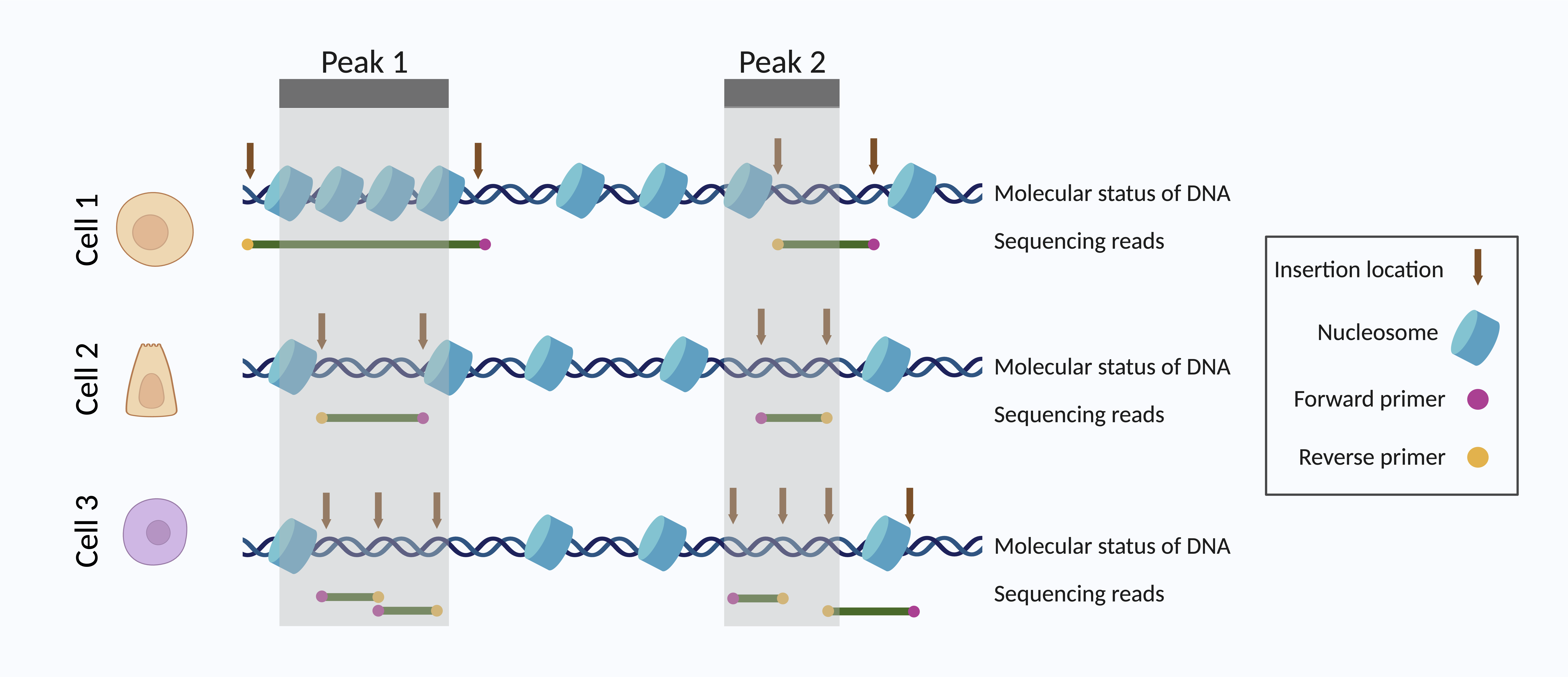The goal of PICsnATAC is to accurately quantify snATAC-seq data. The two key components are:
There are two common counting approaches for snATAC-seq data, fragment-based counting and insertion-based counting. They generate inconsistent results (see figure below).
Here, we present PIC as a uniform counting choice for various assays, including 10X Genomics snATAC-seq, sci-ATAC-seq, SNARE-seq, dsc-ATAC-seq, s3-ATAC-seq, and scNANO-ATAC.
Two insertion events with correct primer configurations are required for one viable fragment. We derived the probability distribution of fragment count as a function of insertion rate and derived a model-based insertion rate estimation framework. We further applied a likelihood ratio test approach to detect DARs between populations.
Building upon our model-based insertion rate estimation framework, this analysis provides a more sensitive test of DAR between cell groups (cell types).
Please install the dependent libraries by running the following codes
install.packages('data.table') ## (please make sure it is newer than 1.8)
if (!require("BiocManager", quietly = TRUE))
install.packages("BiocManager")
BiocManager::install(c('IRanges', 'GenomicRanges','Rsamtools', 'GenomeInfoDb'))You can install the most up-to-date version of PICsnATAC from GitHub with:
# install.packages("devtools")
devtools::install_github("Zhen-Miao/PICsnATAC")PIC-snATAC is a light-weight package. Installation typically takes <5 min.
This is a basic example which shows you how to construct PIC-based cell by peak matrix:
library(PICsnATAC)
pic_matrix <- PIC_counting(cells, fragment_tsv_gz_file_location, peak_sets)The vignettes can be found at our pkgdown page:
https://zhen-miao.github.io/PICsnATAC/
Here, we provided two Google Colab notebooks for users to run the codes on cloud (processed example data and link provided). However, as snATAC-seq data are typically large and computer intensive, it is recommended to run it using computing cluster for large datasets
Notebook 1: Run PIC counting on PBMC data.
Notebook 2: Run PIC DAR on SNARE-seq2 brain data.
If you use PICsnATAC in your research, please cite our paper:
Miao Z and Kim J. Uniform quantification of single-nucleus ATAC-seq data with Paired- Insertion Counting (PIC) and a model-based insertion rate estimator. Nature Methods 2023 (In press)
